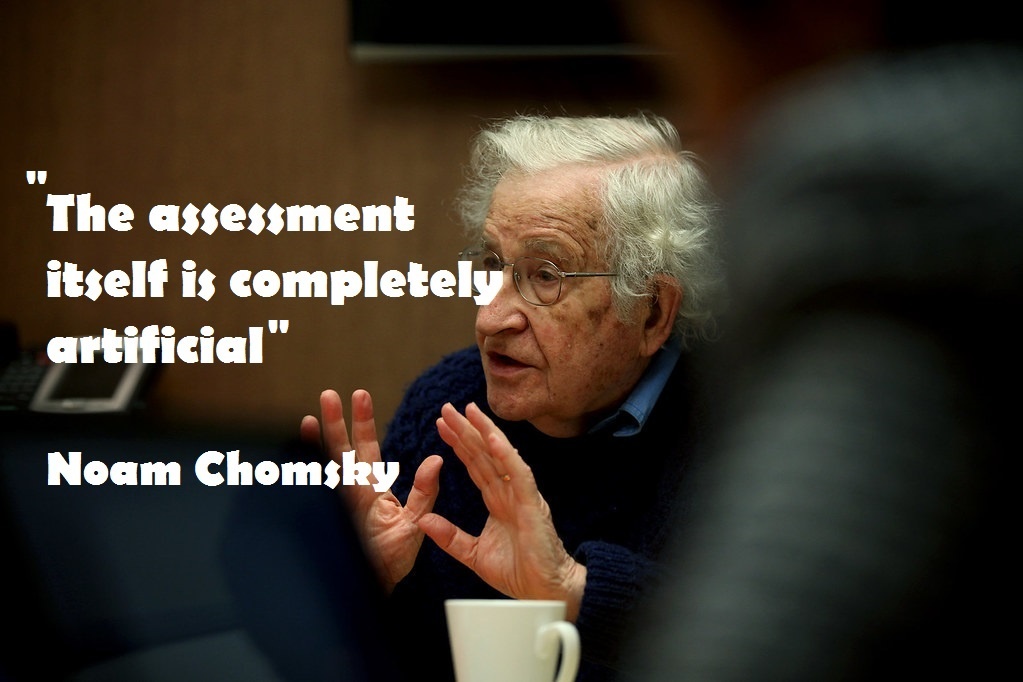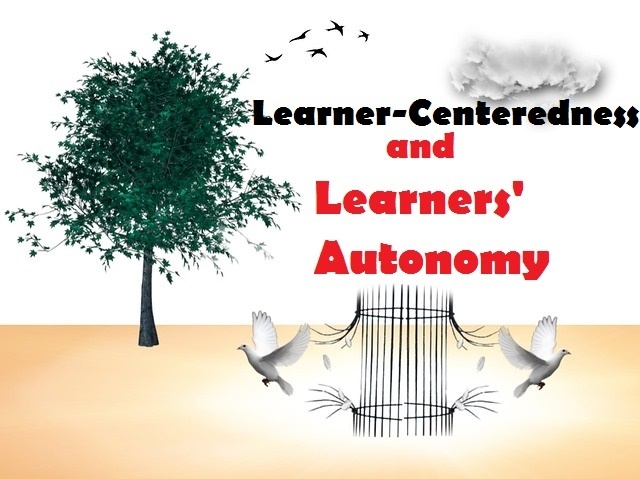In recent years, the issue of assessment and testing has sparked the interest of many educators. A plethora of research have been highly pre-occupied with assessment and testing, (Crooks, 1988; Black & William, 1998; Torrance & Pryor, 2001; Black & William, 2004; Nicol & Macfarlane-dick, 2005; Ruiz-Primo & Furtak, 2006; Buck & Trauth-Nare, 2009; Volante & Beckett, 2011; Hernandez, 2012; Brown & Crumpler, 2013; McMillan et al., 2013; Dayal & Lingam, 2015; Wheatley et al., 2015).
Now, more than ever, there is strong evidence of the deleterious effects of school assessments and testing systems (Wall & Anderson, 1993; Bachman & Plamer, 1996).
In one of the most mind-blowing interviews with the American linguist Noam Chomsky, so much about the current practices of assessment have been revealed. This post summarises and critically discuss the content of the interview. The interview is available on YouTube. Check the link below the post.
What Noam Chomsky said about assessment
“The assessment itself is completely artificial. It’s not ranking teachers in accordance with their ability to help develop children who will reach their potential, explore their creative interests. Those things you’re not testing.. it’s a rank that’s mostly meaningless. And the very ranking itself is harmful. It’s turning us into individuals who devote our lives to achieving a rank. Not into doing things that are valuable and important.”
Take a look at what is happening in educational institutions, right now, there’s a conspicuous tendency to require an assessment of instructors and learners everywhere. Therefore, teaching and learning to the test. In some cases, the test determines what happens to both the teacher and the learner.
This situation apparently destroys any meaningful teaching-learning process. On one hand, it means that teachers cannot be innovative, imaginative, and attentive to individual learners’ needs. On the other hand, learners can’t pursue things they are overwhelmed with and like doing.
By now, we certainly know that different learners have different ambitions, and interests. Yet, they can’t follow them because they will have to memorize and study for the test. The test is so important that the future of those young learners depends on it. So, they are forced to do it.
And if we think about it, we can’t blame test designers. In the interview, Chomsky says: ‘’the people sitting in the offices, the bureaucrats who are designing this, they’re not evil people, but they’re working within a system of ideology and doctrines that turns what they’re doing into something extremely harmful’’.
Basically, teachers don’t have to assess learners all the time… learners don’t have to be ranked in terms of some artificial standards and measures. The assessment itself is completely artificial. Assessments and tests give us ranks, but they are ranks that are mostly meaningless. And the very ranking itself is very deleterious.
It makes students obsessed individuals who devote their whole lives to achieve a position. Not into doing things that are worthy and important. This is very dangerous in primary education, as well. By doing this, teachers are training kids to be competitive and superficial learners.
The true purpose of education should develop our own potential and creativity. Perhaps, we are not going to do well in school and we will do great in art, music or sports. That’s completely fine. What’s wrong with that? It’s another way of living a fulfilling amazing life, and one that is significant for other people as well as ourselves.
The idea [of ranking] is very dangerous in itself. It’s a system of creating something called “economic man.” Do extensive research about ‘’the economic man’’ to understand it more.
Economic man refers to an idealized human being who acts rationally and with complete knowledge. He is an individual who seeks to maximize the personal utility of something. He rationally calculates what kinds of choices he should make to increase his wealth and properties, and he doesn’t have to pay attention to anything else, maximizes the number of goods he has because that is what he can measure.
What kind of human being is that: ‘’the economic man’’? Is that the kind of human being we want to create? Teachers, educators, and parents have to realize that these different mechanisms: testing, assessing, evaluating, measuring- are just ways to force kids to develop those characteristics that have inconvenient ramifications.
So, instead of teaching to the test, assessing topical knowledge, assessing the ability to memorize, making judgments about learners, teachers, educators, and schools should look at ways that help assess and develop things that are required in real-life situations, namely: creativity, resilience, critical thinking, humor, motivation, curiosity, question-asking, civic-mindedness, compassion, empathy, leadership, sense of beauty, sense of wonder, resourcefulness…etc.
Watch the interview video
Like the Facebook page and follow us to keep you updated. Please, if you like this post share it with people who might need to look at it.
RELATED References:
- Alderson, J. C. and Wall, D. (1993). Does Washback Exist? Applied linguistics, 14(2), 115-129.
- Backman, L. F. and Palmer. (1996). Language Testing in Practice. Oxford: oxford university press.








The article by Shohamy is an interesting account of the harmful effects of tests.
Thank you bro, I have read that one. It’s amazing and comprehensive..